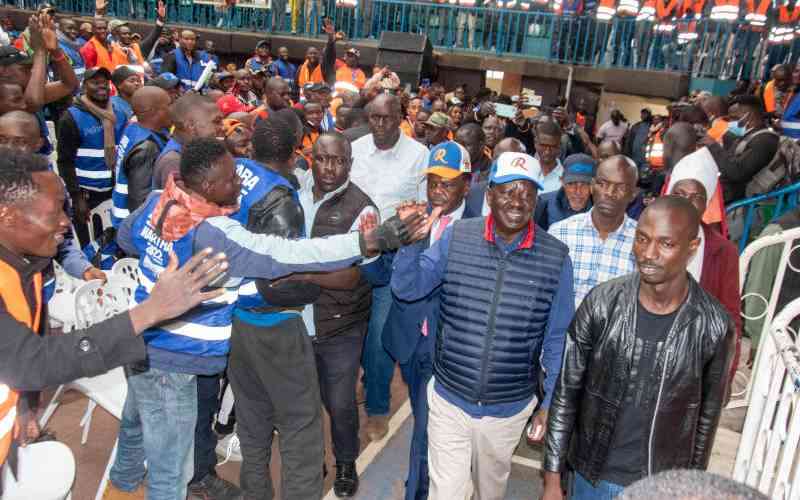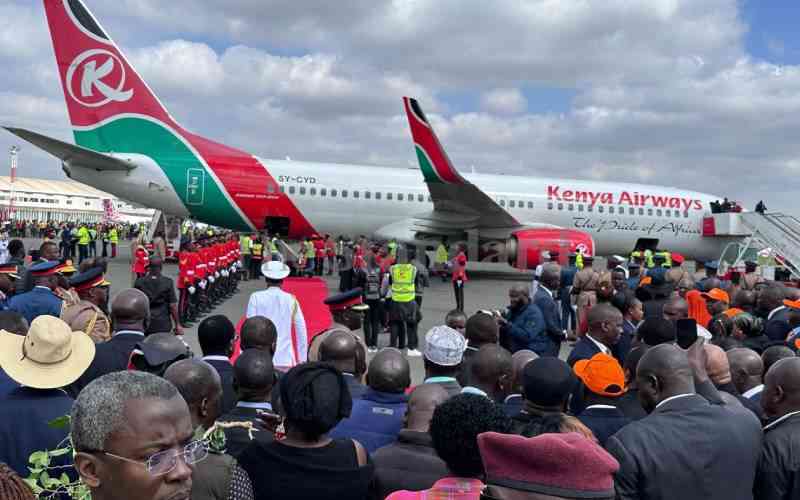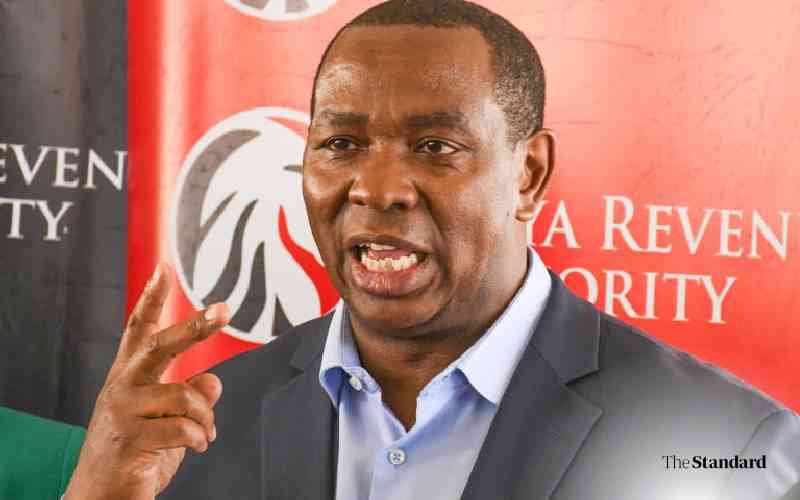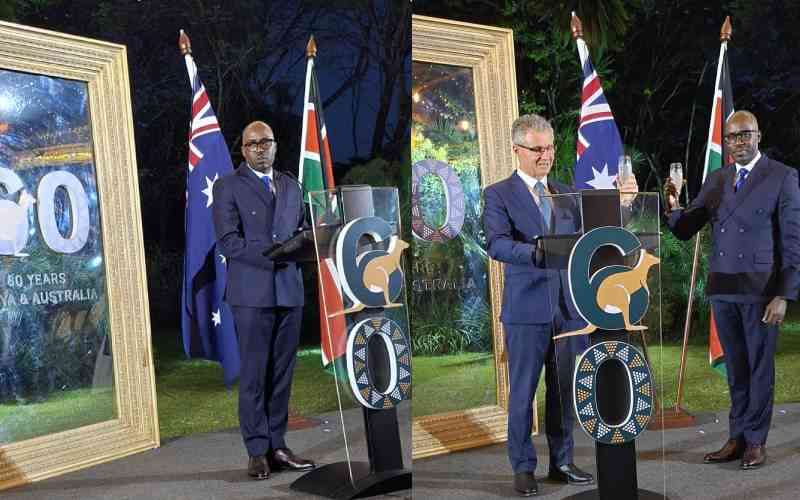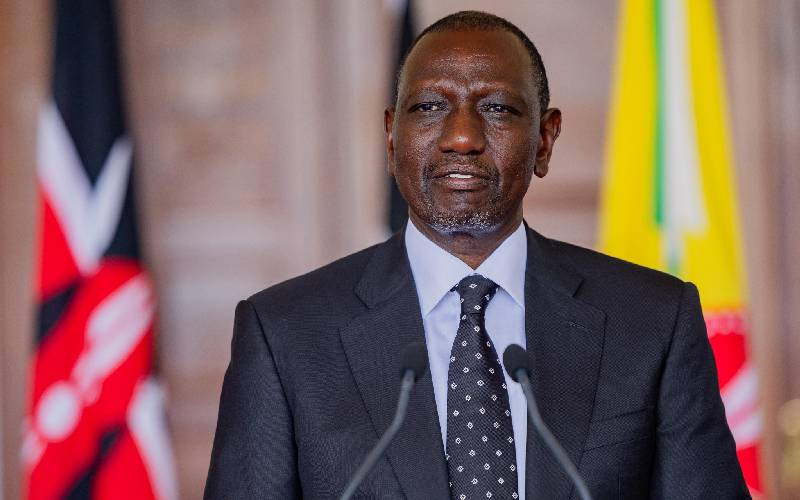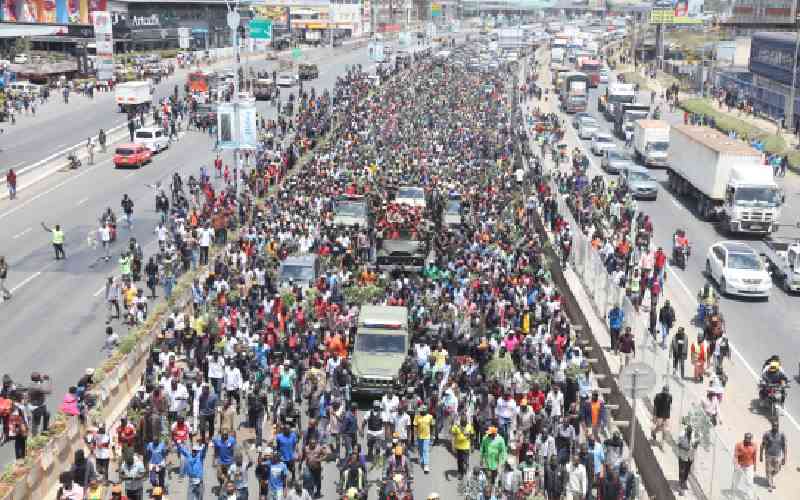
The High Court on Thursday declined to stop the burial of former Prime Minister Raila Amolo Odinga, dismissing an urgent plea by a Luo elder who claimed the planned 72-hour interment violates cultural traditions.
Justice Chacha Mwita ruled that the petitioner, Michael Onyango Otieno, had failed to provide sufficient grounds or witness accounts to warrant halting the burial arrangements.
“The applicant has not demonstrated that the process is being undertaken contrary to the wishes of the deceased to enable this court to act on the request for the conservatory orders,” Justice Mwita said.
Otieno, a senior member of the Luo community, had moved to court seeking to suspend all preparations for Raila’s State Funeral, terming the government’s arrangements “unconstitutional, unjustified and insensitive to the cultural values of the Luo people.”
Through Nyarega & Company Advocates, Otieno argued that the government’s decision to bury the late opposition leader within 72 hours of his death was contrary to Article 44 of the Constitution, which protects the right of every person to participate in their cultural life and enjoy their traditions.
“The burial of the late Rt. Hon. Raila Amolo Odinga, within 72 hours as decreed by the State Funeral Committee, is unconstitutional,” the petition reads.
“It violates Article 44 of the Constitution, which guarantees every person the right to participate in their cultural life and to enjoy their traditions and language.”
The petition, filed before the Constitutional and Human Rights Division at the Milimani Law Courts, named as respondents the Attorney General, the National Committee on the State Funeral of Raila Odinga, Deputy President Prof. Kithure Kindiki, and several Cabinet Secretaries including those for Interior, Defence, and Transport, the Inspector General of Police, and the Kenya Airports Authority.
Other respondents include Lee Funeral Home, the Anglican Church of Kenya, the National Council of Churches of Kenya (NCCK), the Orange Democratic Movement (ODM), and the Odinga family, while the Luo Council of Elders was listed as an interested party.
According to the petition, Otieno claimed that the hurried burial denies the Luo community the opportunity to perform traditional rites, including “tero yuak,” a public mourning procession traditionally performed before the burial of prominent men.
“To inter the body of the late Rt. Hon. Raila Amolo Odinga so quickly denies the Luo community, and Africans at large, the opportunity to give him a befitting sendoff,” he stated in his affidavit.
“This undermines his legacy as a Luo warrior and disrespects the traditions he himself championed.”
He further insisted that the State and the Odinga family had disregarded the cultural identity that the late Raila deeply embraced.
Stay informed. Subscribe to our newsletter
“The arrangements do not factor in the late Rt. Hon. Raila Amolo Odinga’s stature as a huge adherent to the traditions of the Luo community, including aspects such as ‘tero yuak’ (the traditional public mourning ceremony) , which is critical to the interment of men of Luo descent,” the court papers state.
Otieno also challenged the authenticity of claims that Raila wished to be buried within 72 hours of his death.
“His alleged wishes to be buried within 72 hours have not been corroborated by any witnesses,” he argued.
“This scrambles the customary choreography of grief and undermines the Bill of Rights.”
He described the move as both unconstitutional and morally offensive.
“Rushing the burial is not just a procedural issue but a moral affront,” he said. “Luos, and Africans in general, have long viewed extended mourning as a sacred communal act of closure.”
Otieno compared Raila’s stature to that of Kenya’s founding fathers, saying he deserved similar honour.
“Men of the deceased’s stature like the late Presidents Jomo Kenyatta and Mwai Kibaki, and the late Tom Mboya, were sent off with dignity and ceremony that became part of their legacy. The deceased should not be an exception,” he stated.
The petition followed President William Ruto’s announcement of a seven-day national mourning period after Raila’s death in India on October 15, 2025. Flags were ordered to fly at half-mast, and the National State Funeral Committee, co-chaired by Deputy President Kindiki and Raila’s elder brother Dr. Oburu Odinga, was tasked with coordinating the funeral.
According to the official schedule, Raila’s body was to be repatriated from India to Nairobi, received by the President at Jomo Kenyatta International Airport, then flown to Kisumu before final burial at his Bondo home on Sunday, October 19, 2025.
However, Otieno termed the plan “an unseemly rush” that disrespects Luo traditions and the late leader’s cultural identity.
“This is not merely about a funeral,” he said. “It is about the dignity of our culture, the preservation of our heritage, and the respect for a man who symbolized both.”
He sought several orders, including a declaration that the 72-hour burial plan is unconstitutional and violates Article 44 of the Constitution, and a conservatory order suspending any planned interment pending full hearing of the petition.
He also asked the court to direct that costs be borne by the respondents and to issue any other relief it deems fit to uphold cultural rights and constitutionalism.
Justice Mwita, however, declined to grant the conservatory orders, saying the petition lacked merit at this stage.
The court instead directed that the matter be mentioned on October 23 for further directions.
